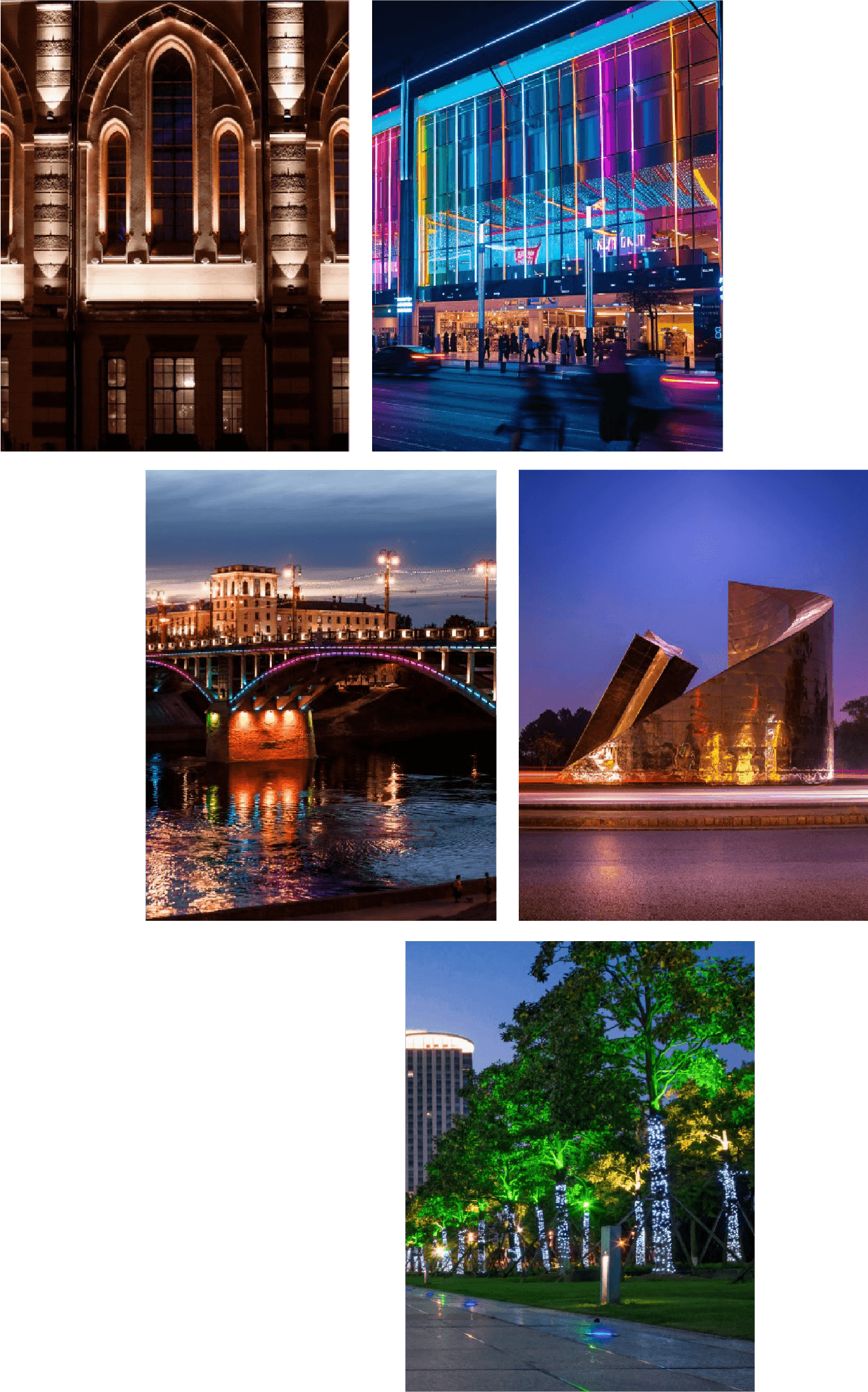
Architectural Lighting Control
Architectural lighting plays a vital role in enhancing urban environments. Well-designed lighting not only improves safety and comfort for residents but also helps create a unique and inviting atmosphere.
Architectural lighting control systems provide precise, dynamic management for buildings, landmarks, and public spaces. Using protocols like DMX512, RDM, and DALI, these systems enable real-time adjustments, synchronization, and programming of lighting effects. Central controllers, such as DITRA ArchiCore, act as the communication hub, connecting luminaires through wired or wireless networks. Operators design and control effects via intuitive software like DITRA Light Studio, enabling seamless integration into architectural projects of any scale.
DITRA offers a wide range of solutions tailored to various types of architectural lighting designs:
• Static Lighting: Steady, elegant illumination to highlight building exteriors
• Dynamic Lighting: Flowing effects, color transitions, and synchronized patterns
• Festive Displays: Vibrant, customizable lighting for events and celebrations
• Landscape Illumination: Highlighting parks, pathways, and gardens with strategic lighting
• Architectural Forms: Accentuating unique structural elements and designs
The DITRA Light Studio software, paired with DITRA ArchiCore hardware, provides a comprehensive platform for designing and managing architectural lighting. It enables the creation of tailored lighting scenarios by considering the project’s architecture, location, and intended visual message.
The system also incorporates advanced management tools for monitoring and maintaining equipment. Predictive algorithms alert operators to potential fixture issues, allowing for proactive replacements and reducing both operating costs and downtime. This combination of creative flexibility and reliable performance makes it an essential tool for modern architectural lighting projects.

Advantages
• Precision Control: Tailored management of each luminaire for customized effects
• Adaptability: Seamlessly supports static, dynamic, and festive designs for various applications
• Energy Efficiency: Reduces costs through intelligent dimming and scheduling
• Durability: Built to withstand harsh environments, ensuring reliable performance
• Advanced Maintenance Tools: Predictive algorithms minimize downtime and operating expenses
• Aesthetic Excellence: Creates visually stunning displays that transform spaces into landmarks
While initial investment costs may be higher, architectural lighting systems provide long-term financial benefits. Energy-efficient designs and intelligent scheduling significantly lower operational expenses. Furthermore, predictive maintenance tools reduce the need for frequent repairs and replacements, ensuring cost-effectiveness and reliability over time.
Architectural lighting control systems combine innovative technology with creative flexibility, offering unmatched precision, efficiency, and aesthetic impact. With tools like DITRA ArchiCore and DITRA Light Studio, designers and operators can craft breathtaking lighting displays while maintaining sustainable and cost-effective operations. Perfect for any scale, these systems are the cornerstone of modern, energy-conscious architectural projects.



